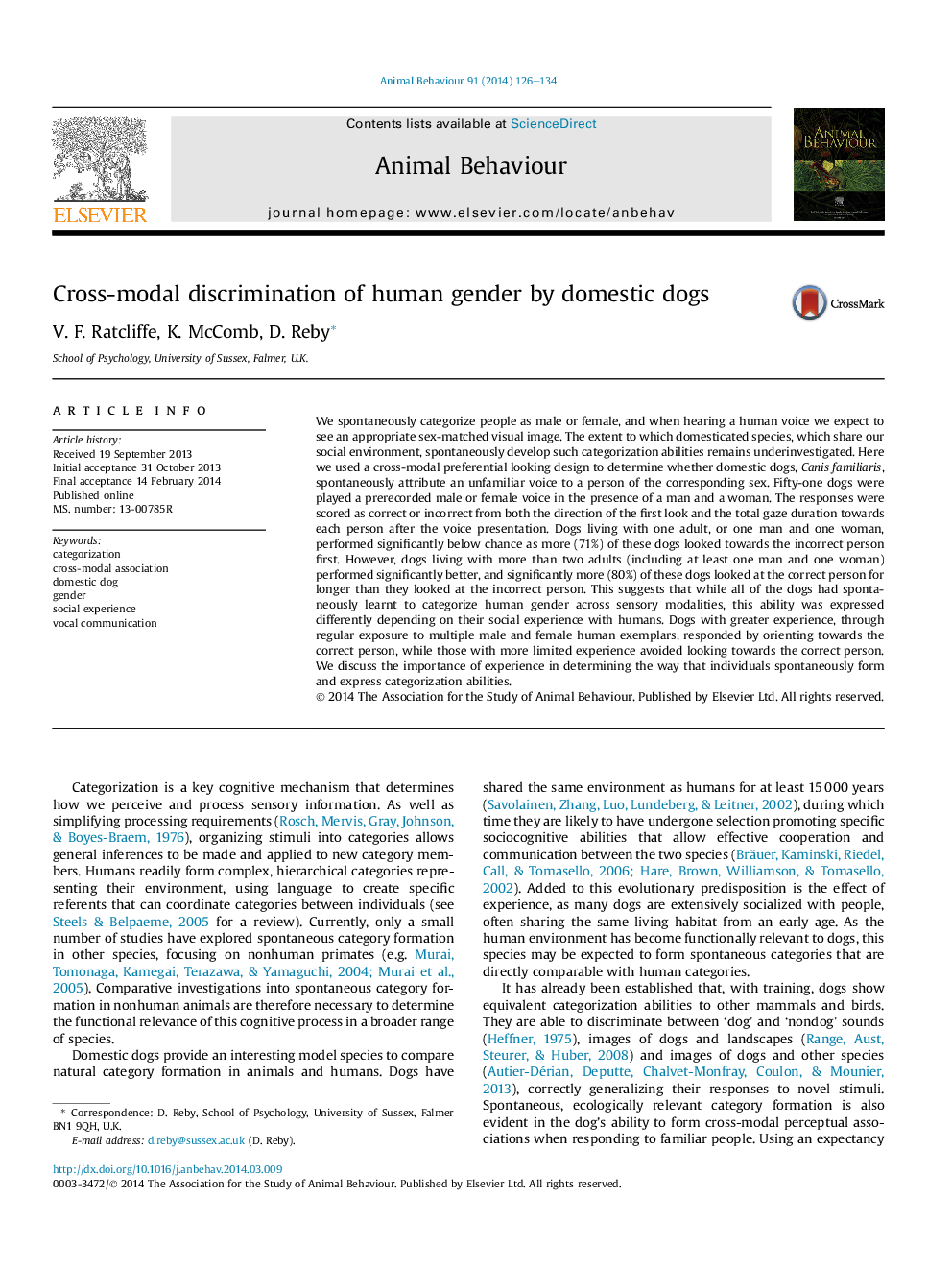| کد مقاله | کد نشریه | سال انتشار | مقاله انگلیسی | نسخه تمام متن |
|---|---|---|---|---|
| 8490652 | 1552237 | 2014 | 9 صفحه PDF | دانلود رایگان |
عنوان انگلیسی مقاله ISI
Cross-modal discrimination of human gender by domestic dogs
ترجمه فارسی عنوان
تبعیض جنسیتی جنسیت توسط سگهای خانگی
دانلود مقاله + سفارش ترجمه
دانلود مقاله ISI انگلیسی
رایگان برای ایرانیان
کلمات کلیدی
طبقه بندی، انجمن متقابل، سگ داخلی جنسیت، تجربه اجتماعی، ارتباط صوتی
موضوعات مرتبط
علوم زیستی و بیوفناوری
علوم کشاورزی و بیولوژیک
علوم دامی و جانورشناسی
چکیده انگلیسی
We spontaneously categorize people as male or female, and when hearing a human voice we expect to see an appropriate sex-matched visual image. The extent to which domesticated species, which share our social environment, spontaneously develop such categorization abilities remains underinvestigated. Here we used a cross-modal preferential looking design to determine whether domestic dogs, Canis familiaris, spontaneously attribute an unfamiliar voice to a person of the corresponding sex. Fifty-one dogs were played a prerecorded male or female voice in the presence of a man and a woman. The responses were scored as correct or incorrect from both the direction of the first look and the total gaze duration towards each person after the voice presentation. Dogs living with one adult, or one man and one woman, performed significantly below chance as more (71%) of these dogs looked towards the incorrect person first. However, dogs living with more than two adults (including at least one man and one woman) performed significantly better, and significantly more (80%) of these dogs looked at the correct person for longer than they looked at the incorrect person. This suggests that while all of the dogs had spontaneously learnt to categorize human gender across sensory modalities, this ability was expressed differently depending on their social experience with humans. Dogs with greater experience, through regular exposure to multiple male and female human exemplars, responded by orienting towards the correct person, while those with more limited experience avoided looking towards the correct person. We discuss the importance of experience in determining the way that individuals spontaneously form and express categorization abilities.
ناشر
Database: Elsevier - ScienceDirect (ساینس دایرکت)
Journal: Animal Behaviour - Volume 91, May 2014, Pages 127-135
Journal: Animal Behaviour - Volume 91, May 2014, Pages 127-135
نویسندگان
V.F. Ratcliffe, K. McComb, D. Reby,
